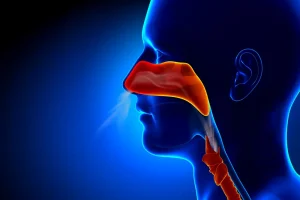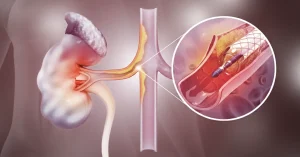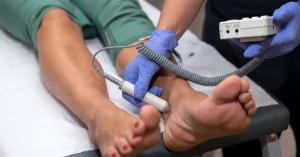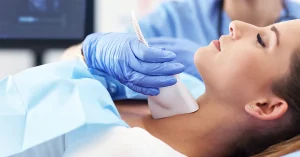Septoplasty is recommended when the nasal septum—the thin wall dividing the two nasal passages—is misaligned or bent rather than straight. A pronounced deviation can obstruct one or both nostrils, making it harder to breathe. This condition may develop naturally or result from trauma to the nose.
What Is a Deviated Septum?
In an ideal nasal structure, the septum sits exactly in the middle, creating two equal airways. When it shifts to one side, the narrower nostril can restrict airflow, especially if the deviation is significant.
Main Causes of Septum Deviation
Some people are born with a deviated septum, while others develop it later due to injuries, such as those from contact sports or accidents. Natural changes in nasal structure over time can also worsen an existing deviation.
Inflammation caused by rhinitis or rhinosinusitis may further narrow the nasal passages, intensifying breathing difficulties.
Possible Complications of a Deviated Septum
Nasal obstruction caused by a septal deviation can lead to:
- A persistent feeling of congestion or pressure
- Dry mouth from mouth-breathing
- Disturbed sleep due to breathing problems
Common Symptoms
A mild septal deviation may cause no noticeable issues. However, more severe cases can lead to:
- Difficulty breathing, especially during colds or allergy flare-ups
- Nosebleeds
- Dryness inside the nostrils
- Snoring or noisy breathing at night
- Chronic nasal congestion
- Recurring sinus infections
If you can only breathe comfortably in certain sleeping positions, or experience frequent nasal blockages that disrupt daily life, these may be signs of septal deviation.
Diagnosis
Your doctor will first review your symptoms and medical history. Examination typically involves rhinoscopy, where a nasal speculum is used to inspect the nasal passages and determine the septum’s position.
Non-Surgical Treatment Options
When symptoms are mild, treatment may not be necessary. For those with discomfort, doctors may prescribe:
- Decongestants (oral or nasal sprays) to reduce swelling in the nasal lining
- Antihistamines to manage allergy symptoms
- Corticosteroid nasal sprays to decrease inflammation and improve drainage
These options help relieve symptoms but do not correct the structural deviation.
Septoplasty or Septal Deviation Surgery
If medications fail to provide relief and symptoms significantly impact daily life—such as causing sleep disturbances, headaches, or fatigue—septoplasty may be recommended.
Preparing for Septoplasty
Patients are advised to avoid anti-inflammatory medications like aspirin or ibuprofen for at least two weeks before and after surgery, as these can increase bleeding risk. Smoking should also be avoided to promote better healing.
The Surgical Procedure
Septoplasty is usually performed under local or general anesthesia. During the procedure, the surgeon repositions the septum to the center of the nose, sometimes removing excess cartilage or bone. In certain cases, silicone splints are inserted for support.
The surgery generally takes about 90 minutes and may be combined with rhinoplasty. A short hospital stay—usually one to two days—is often recommended for monitoring.
Possible Risks and Complications
Though generally safe, septoplasty carries some risks, including:
- Changes in nasal shape
- Excessive bleeding
- Persistent symptoms
- Reduced sense of smell
- Temporary numbness in the upper mouth
- Septal hematoma (blood accumulation)
Complications are uncommon, especially in experienced hands.
Recovery After Septoplasty at VenArt Clinic
Recovery time varies but typically ranges from four to six weeks, with full stability of the septum reached after three to six months.
Post-operative care includes medication to reduce infection risk and discomfort, avoiding nose-blowing, keeping the head elevated during sleep, refraining from strenuous activity, and protecting the nose from injury. Patients should rest in a clean, dust-free environment for at least a week to minimize bleeding risk.
Why Choose VenArt Clinic?
At VenArt Clinic, our team has extensive expertise in diagnosing and correcting septal deviation. Many of our specialists have trained in leading medical centers in Europe and the United States.
We will guide you in determining whether surgical correction or conservative management is the best approach for your individual case. Schedule a consultation and see if septoplasty is right for you.











